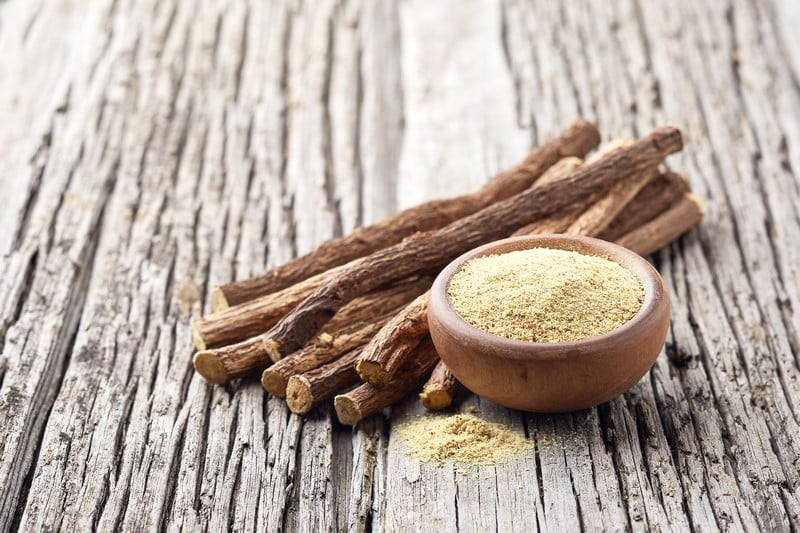Licorice Root

Licorice root is considered one of the oldest remedies. It is used for medicinal purposes apart from beverages and candy flavoring. Many use the herb to treat ailments, including viral and bacterial infections, coughs, hot flashes, acid reflux, and heartburn, to name some examples. In addition, some believe licorice tea can treat sore throats, and topical creams are used for specific skin conditions like eczema or acne. It may even be able to treat diseases like hepatitis.
While licorice root contains many compounds, the primary compound responsible for its antimicrobial, anti-inflammatory, and antioxidant properties is glycyrrhizin. It’s likely to be what enables the herb to serve as a remedy for various conditions, such as peptic ulcers, upper respiratory issues, cavities, menopause, and weight loss. It can also potentially protect against specific cancers and aid in improving diabetes.
However, glycyrrhizin has also been associated with various adverse effects from licorice root. High doses and chronic use of these herbal products may cause abnormal elevation of cortisol, your stress hormone, which could cause electrolyte and fluid imbalances. It could also lead to arrhythmia and low potassium and blood pressure.










